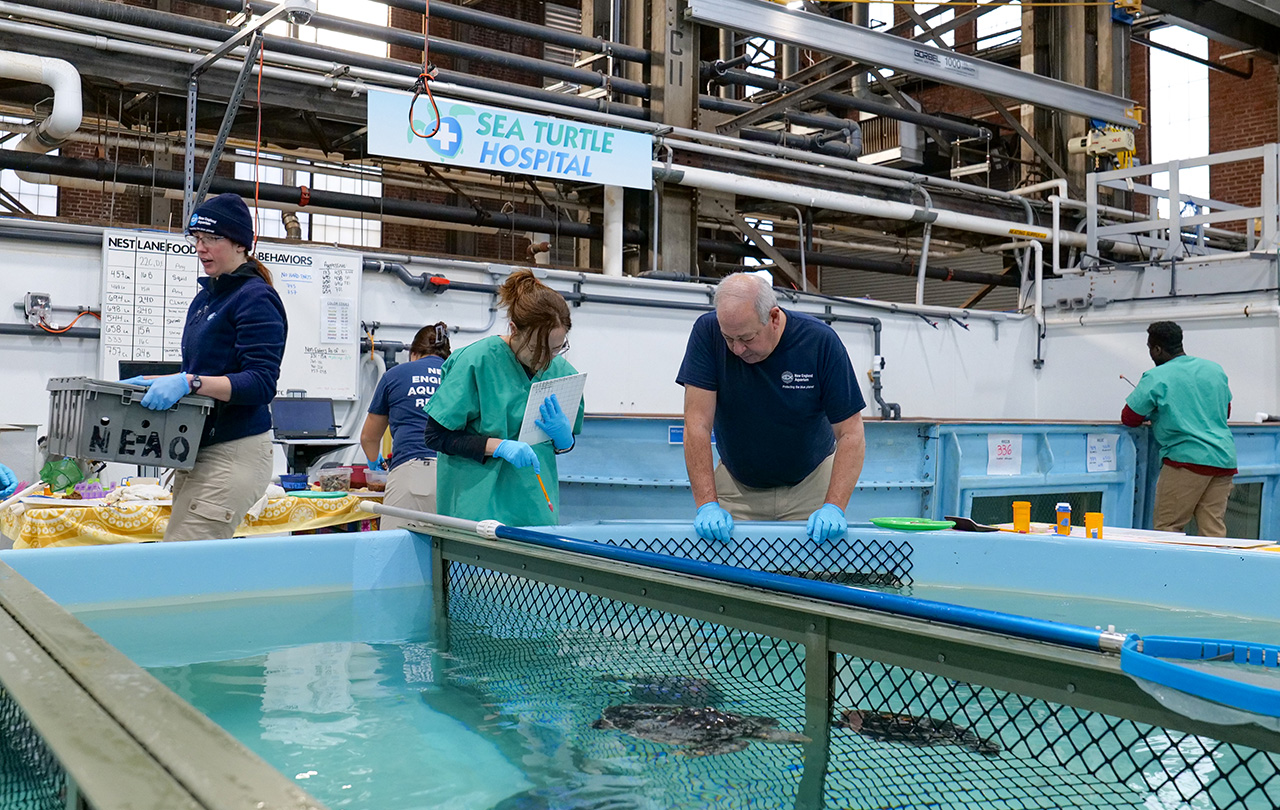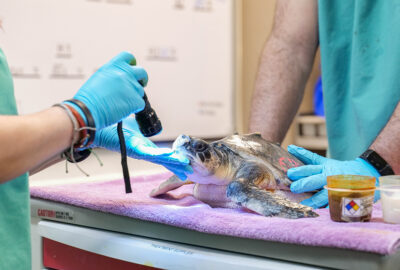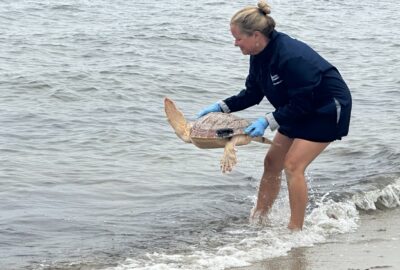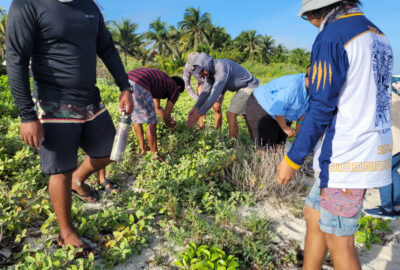Meet Moonflower
This Kemp’s ridley is one of 53 turtles on the road to recovery at the Aquarium’s Sea Turtle Hospital.
By New England Aquarium on Thursday, March 21, 2024

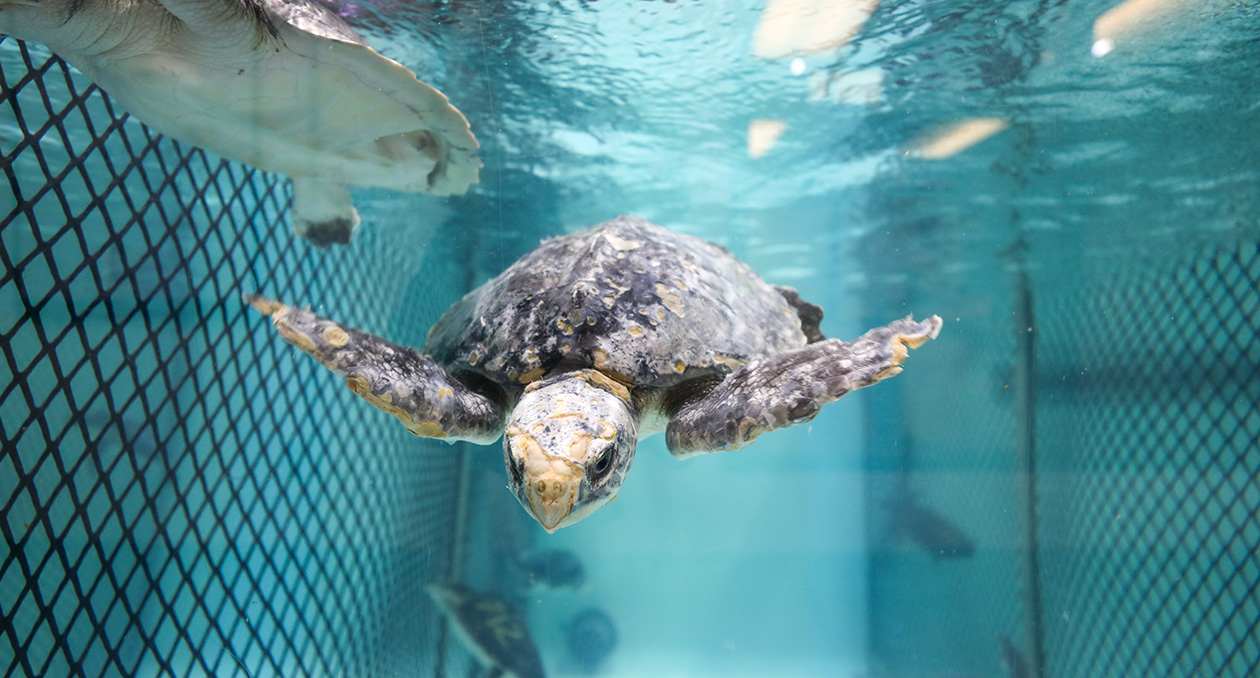
On December 12, 2023, a Kemp’s ridley sea turtle, now called Moonflower, was transported to our Sea Turtle Hospital in Quincy, MA. The cold-stunned turtle presented with severe buoyancy issues in the water as well as swelling of the foreflippers.
“Following a procedure to remove excess fluid from around joints, a blood culture, and CT scan, the animal was diagnosed with a bone infection, pneumonia, and septicemia (a clinical name for blood poisoning by bacteria),” said Dr. Melissa Joblon, director of Animal Health at the Aquarium. Joblon, who has been with the New England Aquarium for almost seven years, works with the sickest rescued turtles.
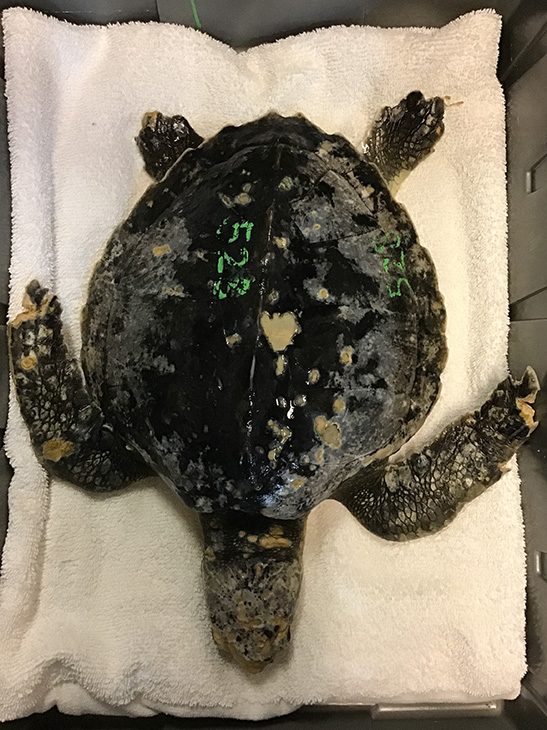
Though abnormal buoyancy, which can keep a turtle from submerging, is a common issue in cold-stunned sea turtles, it was particularly troubling with this animal. X-rays showed that Moonflower had extensive gas build-up in the gastrointestinal (GI) tract. The turtle also had significant external wounds causing bone exposure and sloughing or shedding of the skin and keratin (the structural material making up the outer layer of skin among vertebrates) on the carapace, which is the turtle’s hard outer shell, Joblon explains.
“This shedding and damage make the turtle appear lighter in color than other Kemp’s ridleys, similar to the appearance of a moonflower, which is how the gentle marine animal got its name,” shares Alexie Wrate, an Aquarium biologist.
Since the critically endangered turtle’s rescue, Moonflower has been on antibiotics for infection, pain medication, vitamin supplementation, and GI medications to reduce the gas-causing buoyancy issues. Moonflower is one of nearly 400 live cold-stunned turtles treated by our hospital during this stranding season.
Stranding usually starts in late October. Juvenile Kemp’s ridley sea turtles enter Cape Cod Bay waters in the summer when migrating out of the Gulf Stream. However, when it’s time to swim out of the bay, the hook of the Cape can be challenging to navigate, and many turtles can’t get out of the drastically cooling waters soon enough. After prolonged exposure to too-cold water, typically around 50 degrees, their heart rate and circulation slow down, leading to lethargy, shock, pneumonia, and sometimes even death.
Since the 1970s, our Sea Turtle Hospital has helped rescue and rehabilitate around 5,000 injured sea turtles that have washed up on Massachusetts’ beaches. The last ten years account for almost 80% of those total intakes into our rehabilitation center. Every year, after turtles recover from their injuries, Aquarium and Mass Audubon staff and volunteers head to the beach to release animals back into the ocean.
“We’ve been treating Moonflower for quite some time. They’ve been responding well to treatment with improved appetite and swimming ability,” Joblon says.
The goal for Moonflower—as with all turtles treated by the Aquarium—is to make a full recovery and be released over the summer alongside other rehabilitated turtles, with a supportive crowd of onlookers cheering it on. If this young turtle is anything like its namesake, which blooms nocturnally and has survived some of the harshest weather, then the resilient turtle is sure to be returned home soon.
